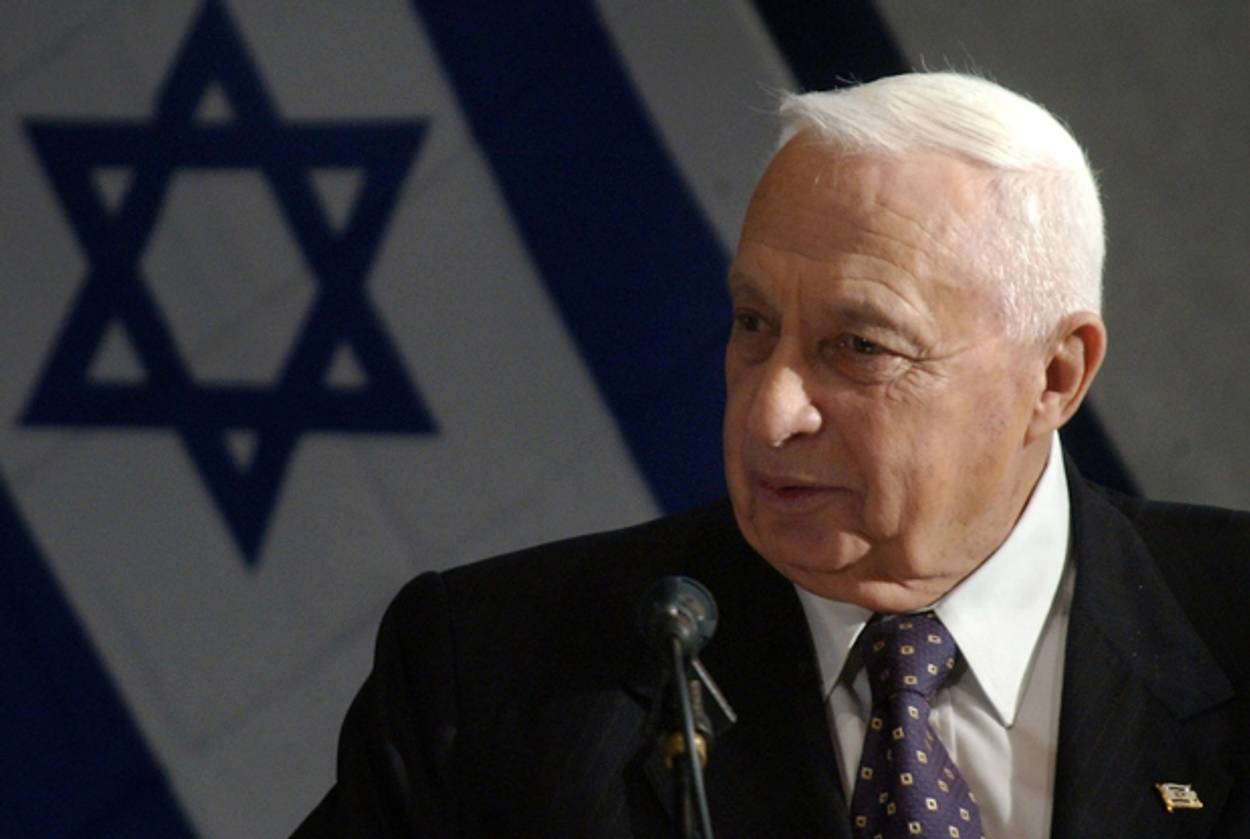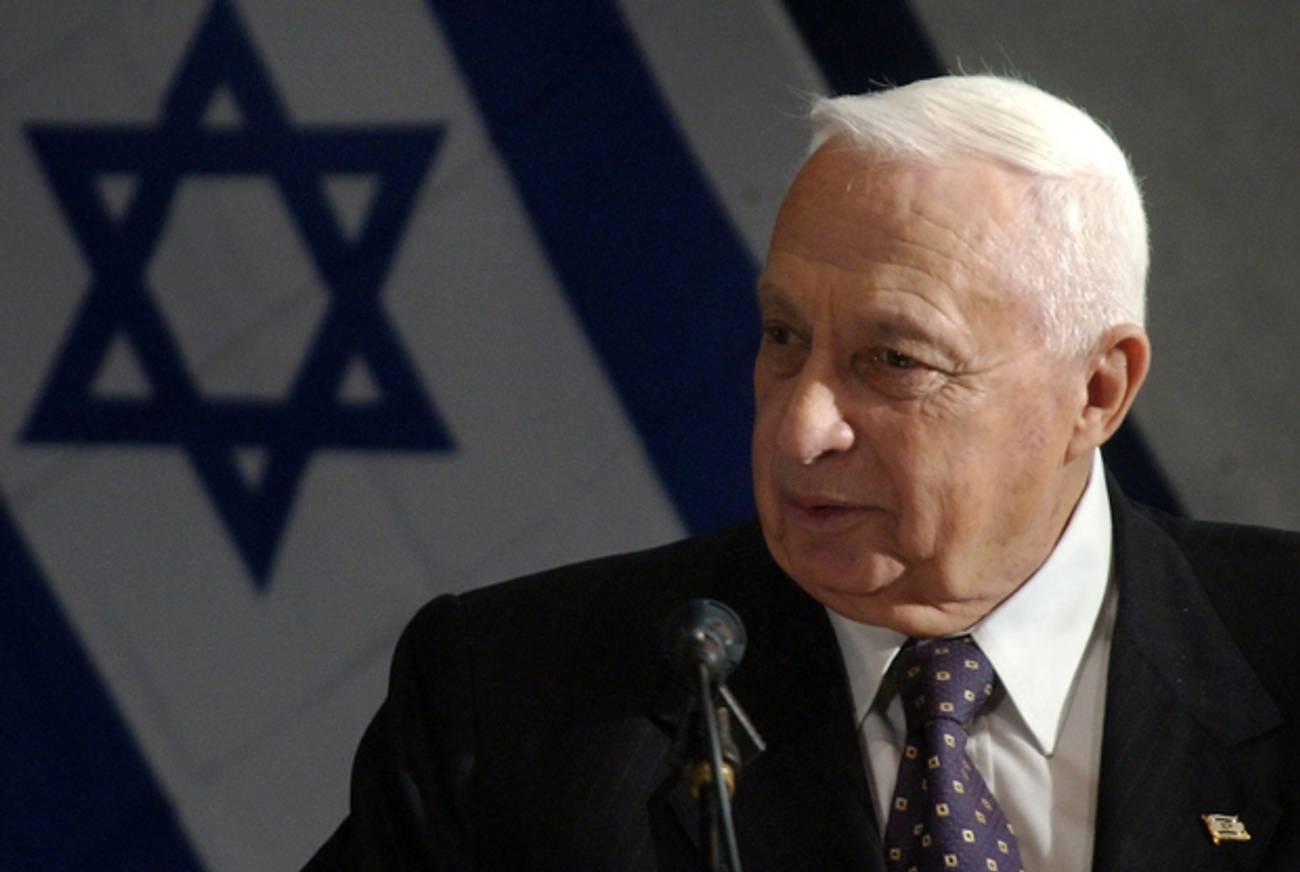Ariel Sharon’s Legacy
Talking to the former Prime Minister’s longtime advisor, Raanan Gissin




Former Prime Minister Ariel “Arik” Sharon, who had been on life support since suffering a massive stroke in 2006, died today at the Tel Hashomer hospital near Tel Aviv.
Sharon, who was 85, fought in every Israeli war since 1948. Known as “the Bulldozer,” he was notorious for using an iron fist against the Palestinians in Lebanon, the West Bank, Gaza, and Jerusalem. When he suffered a stroke on January 4, 2006, he was at the height of his power, having removed all Israeli settlements from the Gaza Strip the previous summer. He had been in a comatose state for the eight years since.
Raanan Gissin was Sharon’s political advisor and close friend for a decade. We spoke by phone about Sharon’s legacy.
What drew you to work with Sharon?
Before I was Sharon’s political advisor, I was his press advisor when he served as Infrastructure Minister under Netanyahu in 1996. The things he did for Israel’s infrastructure, the water and electricity—they were challenging things that normally a prime minister would do. And I saw that I could contribute as a partner to this.
I am a man of action and so was Sharon. What he believed he did as well.
When did you last see Sharon?
I saw him the day he was brought to hospital eight years ago. Since then, only his sons and the doctors have seen him.
What was Sharon’s personality like?
He had a great sense of humor. He really could relate to people. Contrary to his image in the foreign press—that he would eat Arabs for breakfast—he was actually a very gentle person.
What was his proudest achievement?
The issue of natural gas in Israel really took shape when Sharon was in office as infrastructure minister, and today we see the results—we are producing gas here. The process began in 1996. [The electric company] began to move from oil to gas under Sharon.
Politically, Sharon was proudest of the disengagement from Gaza. He had a clear vision that we had to disconnect from Gaza, and then the political process began to work. The fact that Arafat was not willing to do his part is besides the point. Sharon pushed the government to do things no one thought could be done. Who would have thought that Sharon would dismantle the settlements in Gaza? His vision was long-ranging for the State of Israel.
What did he often wish he could improve or do again?
He would say about the things he did, that he learned the hard way. He admitted that what happened in Lebanon, it was not all his fault but he recognized where he failed and where he succeeded.
Do you mean Sabra and Shatila? [The 1982 massacre of Palestinians by Lebanese Maronites during the First Lebanon War, which an Israeli commission held then-Defense Minister Sharon responsible for. He was forced to step down in 1983.]
It’s not only Sabra and Shatila, but the whole Lebanon war, the attempt to create a new rift in Lebanon. He would say later that we did our best, but that he felt he was abandoned in Lebanon by the Lebanese, the Syrians and the U.S.
But you can see that even after Sharon was forced out after Sabra and Shatila, he still became the Prime Minister of Israel. He learned from his successes and failures and tried to change. This is the greatness of leadership.
What is your favorite memory with Ariel Sharon?
With Sharon at his ranch, with the cows. He said his life was not in government, but on the farm. I spent a lot of time there with him.
If he hadn’t had a stroke, where would Israel be today?
If Sharon had not had a stroke and would have continued on his path as prime minister, he could have brought Israel to a much better place. Maybe not to peace, but in the direction of peace with the Palestinians.
I feel a great debt to the man for what he did. I am happy I had the chance to work with someone who did such great things for the State of Israel.
Related: Ariel Sharon: 1928-2014
Previous: Ariel Sharon Dies at 85
Daniella Cheslow is an American journalist covering the Middle East.